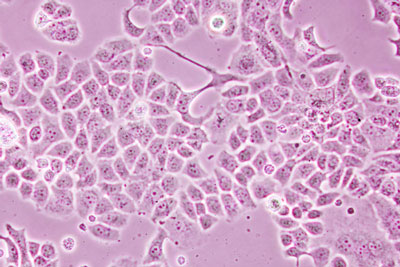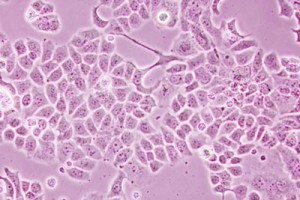Aromatase inhibitors substantially reduce breast cancer deaths
Posted: 24 July 2015 |
A study of more than 30,000 women shows that aromatase inhibitors substantially reduce the risk of death in postmenopausal women ER-positive breast cancer…


A class of hormonal drugs called aromatase inhibitors substantially reduce the risk of death in postmenopausal women with the most common type of breast cancer, a major study of more than 30,000 women shows.


The research underlines the importance of aromatase inhibitors in the treatment of oestrogen receptor (ER)-positive breast cancer – and shows they reduce risk of death by significantly more than the older hormonal treatment tamoxifen.
The study is relevant to postmenopausal women with ER-positive breast cancer, which accounts for over 80% of cases which occur after the menopause. Each trial had used both aromatase inhibitors and tamoxifen at various times during the course of treatment.
In the study, researchers from the Aromatase Inhibitors Overview Group – chaired by Professor Mitch Dowsett at The Institute of Cancer Research, London and The Royal Marsden NHS Foundation Trust – collaborated with colleagues at the Clinical Trials Service Unit at The University of Oxford, to combine the results from 31,920 women in nine clinical trials.
Aromatase inhibitors suppress the synthesis of oestrogens and are taken by postmenopausal women with hormone-sensitive (ER-positive) breast cancer. They have previously been reported to reduce the risk of recurrence more effectively than tamoxifen, but improvements in survival had not been demonstrated.
Aromatase inhibitors offer greater protection than tamoxifen
The current study showed that taking aromatase inhibitors for five years reduced the risk of postmenopausal women with ER positive breast cancer dying of their disease by 40% within 10 years of starting treatment, compared with no hormonal treatment. This compares with the 30% reduction achieved by taking tamoxifen for five years.
Current clinical guidelines reflect the uncertainty in when to use aromatase inhibitors or tamoxifen in the course of treatment – but the new study could help clarify these recommendations.
Professor Dowsett said, “Our global collaboration has revealed that the risk of postmenopausal women with the most common form of breast cancer dying of their disease is reduced by 40% by taking five years of an aromatase inhibitor – a significantly greater protection than that offered by tamoxifen.
“Aromatase inhibitors remove only the tiny amount of oestrogen that remains in the circulation of women after the menopause – but that’s enough to have a substantial impact on a wide range of ER-positive tumours, despite their extraordinary differences at the molecular level.
“But aromatase inhibitor treatment is not free of side-effects, and it’s important to ensure that women with significant side-effects are supported to try to continue to take treatment and fully benefit from it.”
The study is published in The Lancet.




